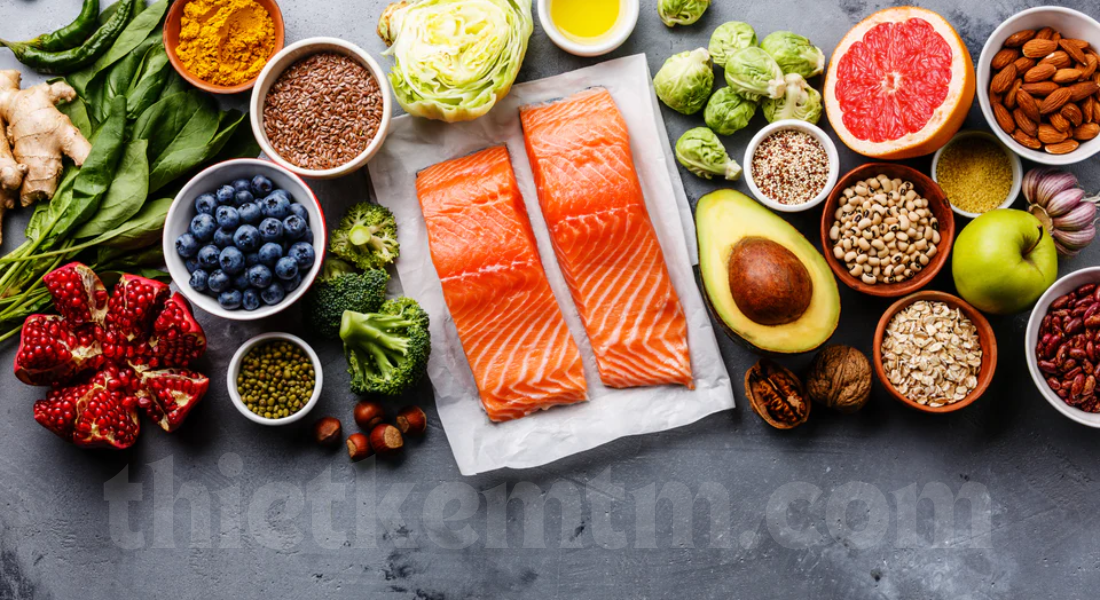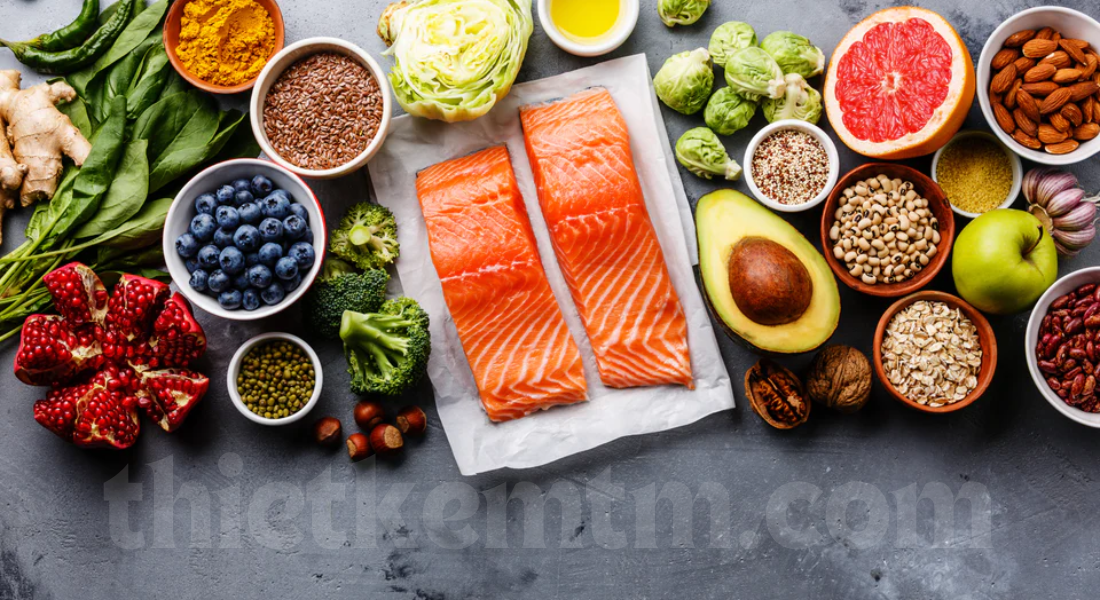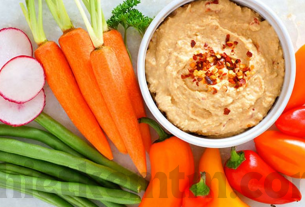In the quest for a healthier lifestyle, one of the most important steps you can take is to focus on consuming nutrient-dense foods. These foods are packed with essential vitamins, minerals, antioxidants, and other nutrients that our bodies need to thrive. Unlike processed or calorie-dense foods, which often provide empty calories with little nutritional value, nutrient-dense foods are rich in compounds that help your body function at its best. Incorporating these foods into your diet not only helps to support overall health but also enhances energy levels, promotes longevity, and optimizes bodily functions, including metabolism, digestion, and immune response.
Nutrient-dense foods are typically whole, unprocessed, and packed with the nutrients that your body needs to stay strong and healthy. Eating a diet rich in nutrient-dense foods can improve your cardiovascular health, support brain function, and promote better digestion. They also help regulate blood sugar levels, reduce inflammation, and strengthen your immune system, making them a cornerstone of disease prevention. Furthermore, the high fiber content of many nutrient-dense foods can improve gut health, promote feelings of fullness, and assist in weight management.
This comprehensive guide will delve into the importance of nutrient-dense foods, explore some of the best examples, and provide practical tips on how to incorporate these foods into your everyday meals for maximum health benefits. By making simple, nutrient-rich food choices, you can transform your health, boost your energy, and feel your best every day. Whether you’re looking to maintain a healthy weight, enhance athletic performance, or simply improve overall well-being. Adopting a diet focused on nutrient-dense foods can help you achieve these goals and more.
What Are Nutrient-Dense Foods?
Nutrient-dense foods are those that provide the highest amount of essential nutrients—such as vitamins, minerals, antioxidants, and fiber—per calorie. Unlike calorie-dense foods that are high in empty calories (such as sugary snacks, sodas, and processed foods). Nutrient-dense foods are packed with the nutrients our bodies need to function optimally while remaining low in unhealthy fats and added sugars. This means that these foods offer more nutritional benefits for fewer calories, making them an ideal choice for anyone looking to improve their overall health and well-being.
These foods are vital for maintaining a balanced diet, especially when striving for optimal health, better weight management, and a reduced risk of chronic diseases like heart disease. Type 2 diabetes, and certain cancers. They help to nourish the body, boost energy, and support the immune system, while also promoting healthy skin, strong bones, and muscle growth. Nutrient-dense foods are essential for anyone who wants to lead a healthy lifestyle and prevent nutrient deficiencies that can lead to fatigue, poor digestion, and a weakened immune system.
Nutrient-dense foods are typically whole, unprocessed, and in their natural form, making them a cornerstone of a balanced diet. Examples include leafy greens, fruits, vegetables, nuts, seeds, lean proteins, and fatty fish. These foods not only provide the essential macronutrients—such as carbohydrates, protein, and healthy fats—but also an array of micronutrients like vitamins A, C, D, and K, as well as important minerals such as calcium, magnesium, and potassium. In addition to their high nutrient content, many of these foods are also rich in fiber, which supports digestive health and helps to regulate blood sugar levels.
Why Should You Eat Nutrient-Dense Foods?
The modern diet, unfortunately, often contains a high number of processed and nutrient-poor foods. This imbalance can lead to nutrient deficiencies, weight gain, and an increased risk of diseases like diabetes, heart disease, and cancer. By choosing nutrient-dense foods, you can counteract these negative effects and provide your body with the building blocks it needs to perform at its best.
Some of the key benefits of eating nutrient-dense foods include:
- Improved Energy Levels: Nutrient-dense foods fuel your body with the right nutrients to maintain sustained energy throughout the day. They help regulate blood sugar levels, preventing the energy crashes often associated with processed snacks.
- Better Immune Function: Many nutrient-rich foods are loaded with vitamins and minerals like vitamin C, vitamin A, and zinc, which are essential for a strong immune system. Eating these foods regularly helps the body ward off infections and illnesses.
- Weight Management: Since nutrient-dense foods are often low in calories but high in nutrients, they provide greater satiety. This can help with appetite control and prevent overeating, which is key to achieving and maintaining a healthy weight.
- Reduced Risk of Chronic Diseases: By incorporating more nutrient-dense foods into your diet, you can help prevent or manage chronic conditions such as heart disease. Type 2 diabetes, and high blood pressure. Antioxidants, fiber, and anti-inflammatory compounds found in nutrient-dense foods work to protect your cells from damage and reduce inflammation.
- Skin Health: Many nutrient-dense foods are rich in antioxidants, which help protect the skin from oxidative damage and premature aging. These foods promote healthy skin by supporting collagen production and improving hydration.
Top Nutrient-Dense Foods to Include in Your Diet
Incorporating a wide variety of nutrient-dense foods into your diet is a powerful way to ensure you’re meeting all your nutritional needs while optimizing your health. These foods are packed with essential vitamins, minerals, fiber, antioxidants, and healthy fats that are crucial for supporting bodily functions. Boosting immunity, and improving overall well-being. Including nutrient-dense foods in your daily meals not only enhances energy levels but also helps maintain a healthy weight, reduces inflammation, and lowers the risk of chronic diseases such as heart disease, diabetes, and cancer. Here are some of the top superfoods and nutrient-packed foods that should be a regular part of your diet:
1. Leafy Green Vegetables
Leafy greens such as spinach, kale, and Swiss chard are among the most nutrient-dense foods available. They are loaded with vitamins A, C, K, and folate, as well as minerals like calcium, iron, and magnesium. These vegetables are also rich in antioxidants like lutein and zeaxanthin, which support eye health and protect the body from oxidative stress and inflammation. By incorporating leafy greens into your meals, you’re providing your body with essential nutrients that support strong bones, healthy skin, and immune function. Adding greens to smoothies, salads, soups, and stir-fries is an easy and delicious way to increase their intake.
2. Berries
Berries, including blueberries, strawberries, raspberries, and blackberries, are packed with vitamins, fiber, and antioxidants. These nutrient-dense foods are particularly known for their high levels of anthocyanins, compounds that support brain health, reduce inflammation, and promote heart health. Berries are also low in calories, making them an excellent option for those looking to manage their weight. Rich in vitamin C, they also help strengthen the immune system and improve skin health by promoting collagen production. Incorporating fresh or frozen berries into smoothies, yogurt, or enjoying them as a snack can enhance your nutrient intake and add a burst of flavor to your meals.
3. Salmon and Fatty Fish
Fatty fish such as salmon, mackerel, and sardines are excellent sources of omega-3 fatty acids, which play a crucial role in reducing inflammation, supporting brain function, and improving heart health. These nutrient-dense foods are also rich in vitamin D, a nutrient essential for bone health, immune function, and mood regulation. The high levels of omega-3s found in fatty fish help maintain healthy cholesterol levels, reduce the risk of cardiovascular disease, and promote optimal brain function. Including fatty fish in your diet just two to three times a week can provide immense benefits for your overall health, and it’s easy to add to salads, sandwiches, or enjoy grilled with vegetables.
4. Nuts and Seeds
Nuts and seeds, including almonds, walnuts, chia seeds, and flaxseeds, are nutrient-dense powerhouses. They provide healthy fats, protein, fiber, vitamins, and minerals. Additionally, they are high in antioxidants like vitamin E and polyphenols. Which help protect the body from oxidative stress and cellular damage. Walnuts, in particular, are an excellent source of omega-3 fatty acids, which support heart and brain health. Seeds like chia and flaxseeds are packed with fiber and are great for digestive health. Adding a small handful of nuts and seeds to your meals or snacks can help keep you feeling full longer while providing essential nutrients.
5. Sweet Potatoes
Sweet potatoes are an incredibly nutrient-dense food that provides a healthy dose of vitamins A and C, potassium, and fiber. These root vegetables are known for their ability to regulate blood sugar levels and promote gut health due to their high fiber content. The antioxidants in sweet potatoes, particularly beta-carotene, support healthy vision and immune function. Rich in complex carbohydrates, sweet potatoes provide sustained energy and help maintain stable blood sugar levels. Whether roasted, mashed, or used in soups, sweet potatoes are a versatile and delicious way to add essential nutrients to your diet.
6. Avocados
Avocados are rich in healthy monounsaturated fats, which are beneficial for heart health by helping to lower bad cholesterol (LDL) levels while increasing good cholesterol (HDL). In addition, they contain a variety of vitamins and minerals, including potassium, folate, and vitamins C, E, and K. Their healthy fat content helps improve the absorption of fat-soluble vitamins and supports overall cell function. Avocados also contain fiber, which aids in digestion and helps regulate blood sugar levels. Enjoying avocado in salads, spreads, or smoothies can help boost your intake of heart-healthy fats and essential nutrients.
7. Cruciferous Vegetables
Cruciferous vegetables such as broccoli, Brussels sprouts, cauliflower, and cabbage are packed with fiber, vitamins, minerals, and antioxidants. These nutrient-dense foods are particularly known for their cancer-fighting compounds, including sulforaphane, which helps protect cells from oxidative damage and supports detoxification. Cruciferous vegetables also contain high levels of vitamin C, folate, and calcium, promoting strong bones, healthy skin, and a robust immune system. Regular consumption of these vegetables can help reduce inflammation and support overall health. Incorporate them into your meals by roasting, steaming, or adding them to salads and stir-fries for a nutrient boost.
8. Eggs
Eggs are a nutrient-dense food that provides high-quality protein, essential amino acids, and a range of vitamins and minerals, including vitamin B12, vitamin D, and selenium. The yolks are also rich in choline, a nutrient that plays a key role in brain health and metabolism. Eggs are one of the few natural sources of vitamin D, which is essential for bone health and immune function. Including eggs in your diet can support muscle repair and recovery, improve brain function, and promote satiety. Whether scrambled, poached, or used in baking, eggs are an easy and versatile addition to any meal.
9. Legumes
Beans, lentils, chickpeas, and other legumes are an excellent source of plant-based protein, fiber, iron, and folate. These nutrient-dense foods help regulate blood sugar levels, improve digestion, and promote heart health due to their high fiber content. Legumes are also low in fat and contain essential nutrients like potassium, magnesium, and zinc, which help support bone health, maintain healthy blood pressure levels, and boost immunity. Adding legumes to soups, salads, stews, or using them as a base for veggie burgers can help increase your intake of plant-based protein while providing important nutrients.
10. Dark Chocolate
Dark chocolate, particularly varieties with 70% cocoa or higher, is packed with antioxidants, iron, magnesium, and fiber. The flavonoids in dark chocolate have been shown to improve heart health by increasing blood flow, lowering blood pressure, and reducing the risk of cardiovascular disease. Consuming dark chocolate in moderation can also boost mood by stimulating the production of endorphins and improving cognitive function. In addition to its health benefits, dark chocolate makes a delicious and nutritious treat. Just a small square of high-quality dark chocolate can provide a satisfying and nutrient-dense snack that supports overall well-being.
How to Incorporate Nutrient-Dense Foods into Your Diet
Now that you know what nutrient-dense foods are and the many benefits they provide, the next step is to incorporate them into your daily meals. Here are some tips for making these superfoods a regular part of your diet:
- Start Your Day with Nutrient-Dense Breakfast Options: Begin your day with a nutrient-packed breakfast, such as a smoothie made with spinach, berries, and flaxseeds or scrambled eggs with avocado and a side of leafy greens.
- Snack on Nuts and Seeds: Replace processed snacks with a handful of almonds, walnuts, or chia seeds. These nutrient-dense options will keep you feeling full and energized throughout the day.
- Add Vegetables to Every Meal: Make vegetables the star of your plate by incorporating leafy greens, cruciferous vegetables. And other nutrient-dense produce into your lunch and dinner. A simple salad with kale, tomatoes, and avocado can make a great side dish or main meal.
- Opt for Fatty Fish: Try to include fatty fish in your diet at least twice a week. Grilled salmon, sardines, or mackerel can be added to salads, tacos, or enjoyed as a main dish.
- Include Legumes in Soups and Stews: Beans, lentils, and chickpeas can be added to soups, stews, or salads to boost your meal’s nutrient density. They are also a great meat substitute for plant-based diets.
- Use Sweet Potatoes as a Side or Main Dish: Swap out white potatoes for sweet potatoes in your meals. Roast, mash, or bake them to enjoy their natural sweetness and nutrient-rich benefits.
Conclusion
Incorporating nutrient-dense foods into your diet is one of the best ways to boost your health and support your long-term wellness. By focusing on whole, unprocessed foods like leafy greens, fatty fish, berries, and nuts. You provide your body with the essential nutrients it needs to function optimally. These nutrient-rich foods not only help you maintain a healthy weight but also support immune function, improve energy levels, and enhance cognitive performance. Additionally, consuming nutrient-dense foods can lower your risk of chronic diseases such as heart disease, diabetes, and cancer. Making them a critical component of any health-conscious lifestyle.
Eating nutrient-dense foods is not about following a restrictive diet. It’s about making mindful food choices that nourish and fuel your body. Whether you are aiming to lose weight, boost your immune system. Or simply feel more energetic throughout the day, nutrient-dense foods can help you achieve your goals. These foods are versatile and can be easily incorporated into any meal plan, allowing you to enjoy a wide variety of delicious, health-boosting dishes.
By making these nutrient-rich foods a regular part of your meals, you’ll be on your way to better health, improved energy, and a reduced risk of chronic diseases. The benefits of nutrient-dense foods extend beyond just physical health. They can also have a positive impact on your mental well-being. Many of these foods contain nutrients that support brain function, improve mood, and help manage stress. This holistic approach to nutrition ensures that you are taking care of both your body and mind.





